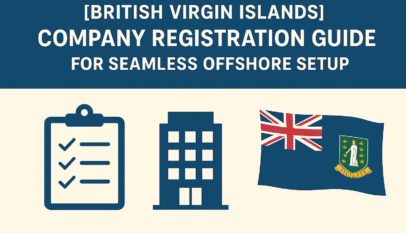
Choosing the best credit card processor for ecommerce can significantly impact a business’s bottom line. For most online businesses, Square stands out as the best credit card processor due to its transparent pricing, user-friendly interface, and robust features tailored for ecommerce needs. Entrepreneurs looking to optimize their payment processing will find that making an informed choice is crucial for success in a competitive online marketplace.
When evaluating options, various factors such as transaction fees, integration capabilities, and customer support come into play. Not all processors suit every business model; therefore, understanding specific requirements is essential. A well-chosen credit card processor not only facilitates transactions but also enhances the customer experience, which in turn drives sales and growth.
This blog post explores the top contenders in the ecommerce credit card processing space, providing detailed analysis on features and advantages of each. Readers will gain valuable insights that can help them select a processor that aligns with their unique business objectives and customer expectations.
Evaluating Credit Card Processors for Ecommerce
When selecting a credit card processor for ecommerce, several critical factors come into play. These include fee structures, the ease of integration with payment gateways, and adherence to security standards. Understanding each aspect can greatly enhance the decision-making process.
Understanding Fee Structures
Fee structures often vary significantly among credit card processors. Generally, they include interchange fees, processing fees, and monthly fees.
- Interchange Fees: Typically set by credit card networks, these fees are charged by banks whenever a card is processed.
- Processing Fees: These are the fees charged by the processor for their services, which can be a flat fee per transaction or a percentage of the sales volume.
- Monthly Fees: Some companies may charge a monthly fee for account maintenance.
Businesses should assess these charges carefully. A processor may seem appealing at first glance but could have hidden fees that inflate costs over time. A detailed comparison will reveal the most cost-effective options.
Assessing Payment Gateway Integration
Payment gateway integration is crucial for any ecommerce platform. A smooth, efficient integration ensures a seamless customer experience.
- Compatibility: Not all processors work with every ecommerce platform. Checking compatibility with existing systems is vital.
- Ease of Use: User-friendly interfaces and straightforward processes can facilitate faster transactions and reduce cart abandonment rates.
- Third-party Integrations: It’s also beneficial to see if the processor supports integrations with popular tools like CRMs and inventory management systems.
A well-integrated gateway can streamline operations, enhance customer satisfaction, and improve conversion rates.
Security Standards and Compliance
Security is a top priority for ecommerce operations due to the sensitive nature of transaction data.
- PCI Compliance: Processors must adhere to Payment Card Industry Data Security Standards (PCI DSS) to protect cardholder information.
- Fraud Protection Features: Advanced fraud detection tools and alerts can help minimize risk.
- Encryption Technologies: Secure encryption ensures that sensitive data remains protected during transmission.
Choosing a processor that prioritizes robust security measures will not only protect the business but also build customer trust, leading to stronger relationships.
Top Credit Card Processors for Ecommerce Businesses
Ecommerce businesses require reliable and efficient credit card processors to facilitate transactions. The following sections will provide a detailed comparison of leading providers and analyze their distinct features and benefits.
Comparison of Leading Providers
Numerous credit card processors serve ecommerce businesses, each with unique advantages. Notable providers include:
- PayPal: Known for its user-friendly interface and established trust among consumers. It offers seamless integration and quick setup for online stores.
- Stripe: Popular for its developer-friendly tools and extensive customization options. It provides advanced features like subscription billing and marketplace support.
- Square: A versatile option for both online and in-person sales. It offers transparent pricing with no monthly fees, making it appealing for small businesses.
- Authorize.Net: A long-standing player in the industry, known for robust security features. It supports various payment types and provides excellent customer support.
Features and Benefits Analysis
When selecting a credit card processor, several factors should be considered, including:
- Transaction Fees: Processors typically charge a percentage fee per transaction, along with a flat fee per sale. For example, PayPal has a rate of 2.9% + $0.30 per transaction.
- Integration Capabilities: Smooth integration with ecommerce platforms is essential. Stripe, for instance, supports various platforms, including WooCommerce and Shopify.
- Customer Support: Reliable support can impact business operations. Square offers 24/7 customer service, ensuring timely assistance.
- Security Features: Protecting customer data is crucial. Providers like Authorize.Net utilize advanced fraud detection tools and tokenization for secure transactions.
By evaluating these features, businesses can choose the best credit card processor to meet their specific needs.
British Virgin Islands Company Registration Guide for Seamless Offshore Setup
Registering a company in the British Virgin Islands (BVI) is a straightforward process tha…









